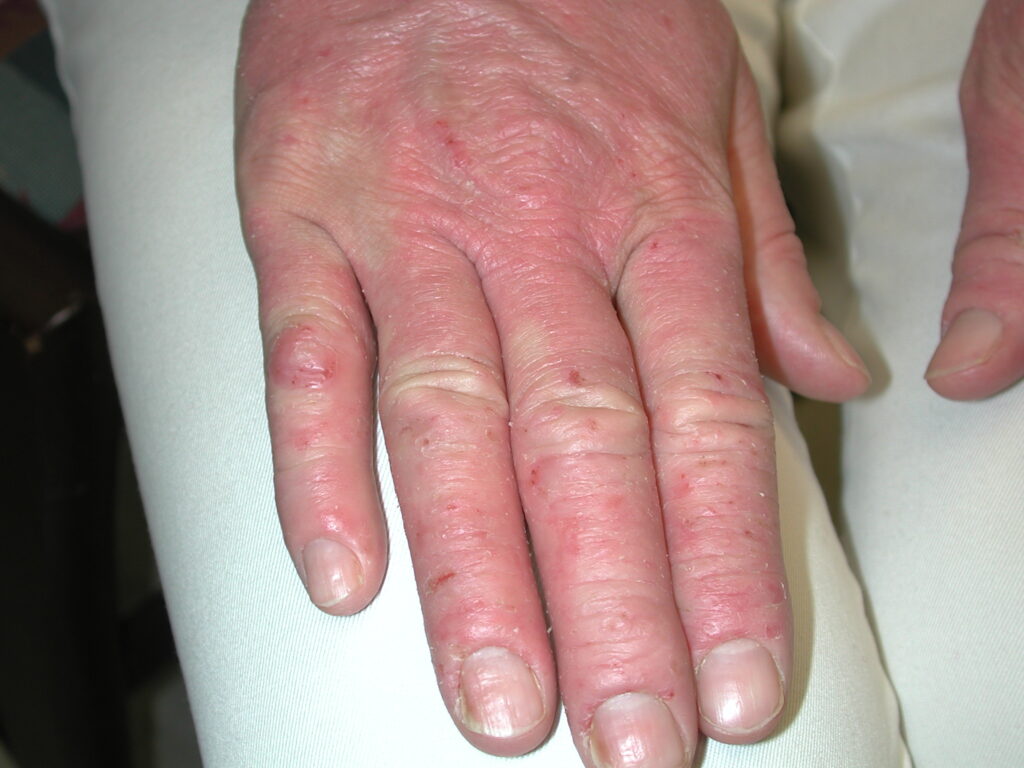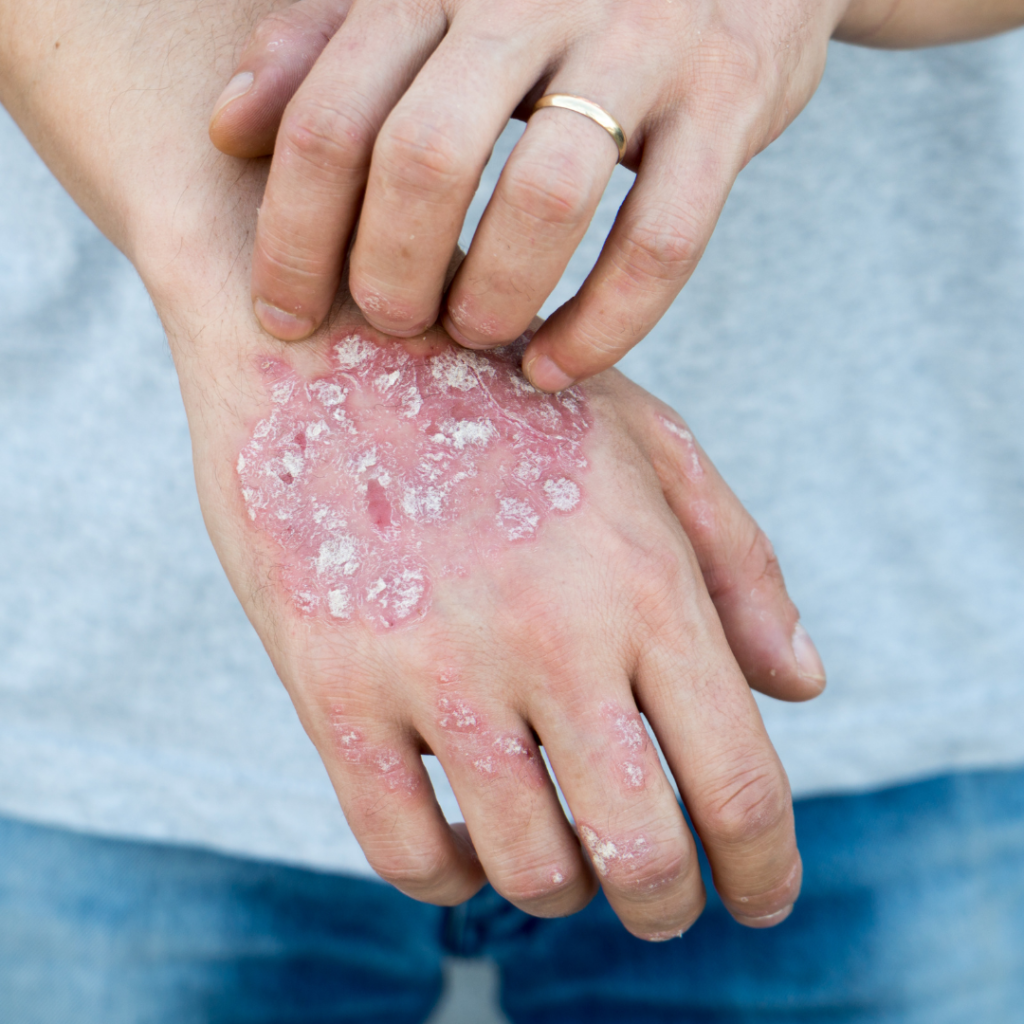
Eczema vs Psoriasis
Psoriasis | Eczema Signs| Psoriasis Signs| Differences| Foods| Treatment| Conclusion|
Eczema vs Psoriasis
Eczema and Psoriasis are two different skin conditions with similar symptoms. Both can be itchy and present red patches on your skin. However, with psoriasis there’s a little something extra going on. Psoriasis causes the skin cell lifecycle to speed up, the scaly patches caused by this skin condition are actually dead skin cell build up. Although there is no exact answer for why this happens, psoriasis is grouped into immunity issues. Psoriasis is a long-term, chronic skin condition with no cure at the moment.
On the other hand, eczema also causes skin inflammation, but it usually starts in early years and it is possible to grow out of it. Eczema is more prone to skin breakages and blisters due to itching, whereas psoriasis is more likely to crack and less likely to bleed.
Signs Of Eczema
The characteristic signs of eczema are:
- Red and inflamed skin
- Itchy skin
- Dry skin

Signs Of Psoriasis
The typical signs of psoriasis are:
- Thick patches of white scales on the skin
- Red, raised, inflamed patches of skin
- Dry, cracked skin
- Slight itch, burning feeling

Difference Between Eczema And Psoriasis
When comparing the signs of eczema and psoriasis, there is an overlap between the two skin conditions. Although eczema and psoriasis may visually look similar, there are still many differences between eczema and psoriasis.
As mentioned previously, psoriasis is an autoimmune disease, meaning the immune system is dysfunctional and in this case, causes your skin cells to grow too fast. This is in contrast to eczema which can be caused by multiple triggers, and even a combination of factors such as genetics and the environment.
Additionally, eczema tends to be a lot itchier while psoriasis can also be itchy but is also described to burn.
Eczema is commonly seen on the following parts of your body:
- Inner elbows
- Behind the knees
- Ankles
- Behind the neck
Psoriasis is tricky to pin point and can be seen in many areas including but not limited to:
- Elbows and knees
- Scalp and face
- Lower back
- Palms of your hands
- Soles of your feet
Foods That Cause Eczema And Psoriasis
When faced with the challenges of skin conditions like eczema and psoriasis, it’s smart to consider incorporating more anti-inflammatory foods into your diet. Eczema can often be linked to food allergies, and can present as a part of the atopic march.
Some foods to avoid if you have eczema are:
- Dairy products
- Eggs
- Soy
- Nuts
- Sugary foods
- Salty foods
- Caffeine (coffee, tea)
- Sugary drinks (sodas)
- Fast food
Speak to your healthcare practitioner if you think you may have food allergies, and before making changes to your diet.
Some foods to avoid if you have psoriasis:
- Red meat
- Dairy
- Gluten
- Processed foods
- Vegetables from the nightshade family (tomatoes, potatoes, eggplants and peppers)
- Alcohol
Psoriasis And Eczema Treatment
Currently there are no cures for psoriasis or eczema. Psoriasis and eczema treatment options focus on managing the symptoms and preventing flare-ups.
For psoriasis, the treatment options include:
- Topicals
- Systemic therapies
- Light therapy
Creams and ointments applied directly to the skin can be helpful for reducing mild to moderate psoriasis.
Treatment options for eczema include:
- Moisturizers (emollients)
- Anti-inflammatory ointments – either topical corticosteroids or non-steroidal anti-inflammatory ointments
- Dietary changes
- Probiotics
Summary
While eczema and psoriasis are similar, there are key differences between these two skin conditions. Eczema is tied to skin inflammation, psoriasis is connected to buildup of skin cells. Both skin conditions currently have no cure, but there are many ways to manage the symptoms.
If you have any signs of skin inflammation, speak to your healthcare practitioner to check if you have eczema or psoriasis. Once you have a diagnosis, work with your healthcare team to curate a treatment plan that works for your symptoms and lifestyle.
References:
Penn Medicine: Eczema Vs. Psoriasis: Similarities, Differences and Treatments
WebMD: Psoriasis Vs. Eczema: How to Tell the Difference
American Academy of Dermatology Association: What’s the Difference Between Eczema and Psoriasis?
National Eczema Association: Is It Eczema or Psoriasis?
National Psoriasis Foundation: Psoriasis or Eczema?
